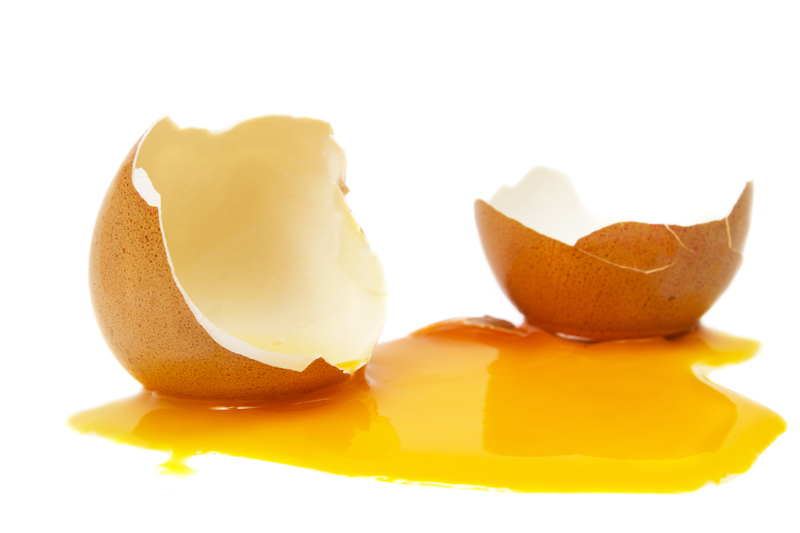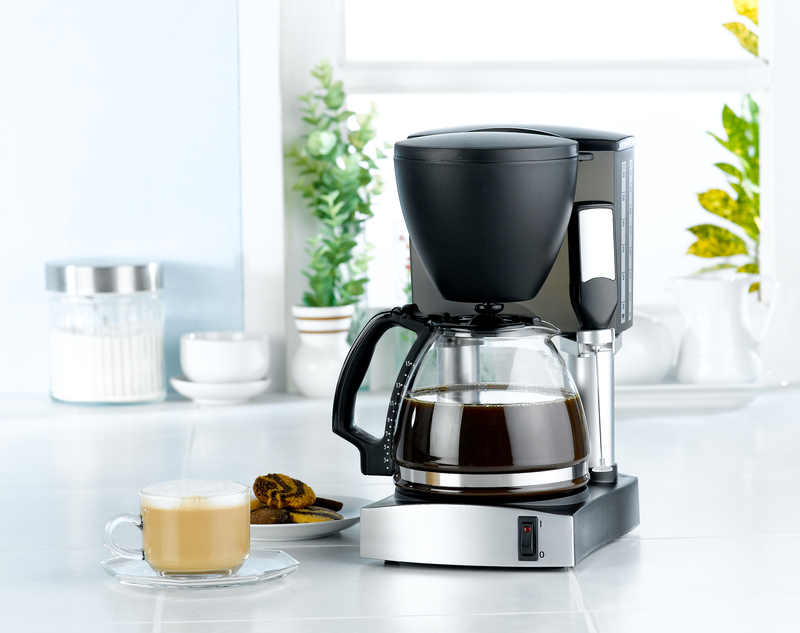Your Guide to Achieving Perfectly Clean Windows
Posted on 17/06/2025
Your Guide to Achieving Perfectly Clean Windows
When it comes to home maintenance, one of the most satisfying results comes from spotless, streak-free windows. Whether you're aiming to improve curb appeal or simply bring more sunlight indoors, learning how to get your windows perfectly clean is an essential skill. In this comprehensive guide, we'll dive deep into the best tools, techniques, and window cleaning tips to ensure your glass always sparkles.
Why Clean Windows Matter
Clean windows do more than just look good. They allow more natural light to fill your rooms, boost your mood, and can even help improve energy efficiency. Dirt, grime, or streaks not only obstruct your view but can damage your window panes and frames over time. Regularly cleaning your windows is a simple way to preserve their longevity and keep your entire home feeling fresh and welcoming.

Essential Tools for Cleaning Windows
Before you start washing your windows, make sure you're equipped with the right tools. Having the proper supplies makes the job faster, easier, and far more effective. Here's a list of must-have window cleaning equipment:
- Squeegee: For streak-free, professional results
- Microfiber cloths: To lift away dirt and polish the glass
- Buckets: For mixing your cleaning solutions and rinsing
- Scrubber or sponge: For loosening stubborn dirt and stains
- Window cleaning solution: Store-bought or homemade options work well
- Extension pole: To reach high or hard-to-access windows safely
- Soft-bristled brush or vacuum: For cleaning window frames and tracks
- Gloves: To protect your hands from chemicals and grime
Types of Window Cleaning Solutions
When aiming for perfectly clean windows, the type of cleaner you use matters. You can choose between commercial cleaners or make your own eco-friendly version at home.
- Commercial Window Cleaners: These are designed specifically to break down greasy spots and eliminate streaks. Look for ammonia-free options if you have pets or children.
- DIY Window Cleaning Solutions:
- Vinegar and Water: Mix equal parts distilled white vinegar and water in a spray bottle.
- Dish Soap and Water: A few drops of liquid dish soap mixed with warm water can cut through grime without leaving a residue.
- Lemon Juice and Water: For a pleasant aroma and extra shine, add a few tablespoons of lemon juice to a quart of water.
Always test any solution on a small portion of the window before full use to ensure there's no damage or hazing.
Step-by-Step Process for Spotless Windows
Preparing Your Space
- Remove any window screens, curtains, or blinds. Lay them aside for separate cleaning.
- Lay towels or drop cloths on the windowsill and floor to catch drips.
- Open the window slightly if possible, for better access to both sides.
Dusting and Cleaning Window Frames
Start by removing dust, dirt, and cobwebs from the window frame and sills using a brush, vacuum, or microfiber cloth. This prevents grime from transferring onto the glass during washing.
Applying Your Window Cleaner
- Spray your chosen cleaner generously onto the glass. If the window is very dirty, let the cleaner sit for a minute.
- Use a soft-bristled brush or sponge to gently loosen and lift stubborn dirt, especially from corners.
Washing and Rinsing the Glass
- With a damp microfiber cloth or window scrubber, clean in a circular motion to remove all grime.
- If rinsing is needed, wipe down with a cloth soaked in clean water.
Using a Squeegee for Streak-Free Results
- Start at the top corner of the window.
- Pull the squeegee across the glass in a straight line, applying gentle, consistent pressure.
- Wipe the blade with a clean, dry cloth after each pass to avoid transferring dirt.
- Overlap your strokes slightly and finish with a vertical pass along the sides for extra polish.
Finishing Touches
- Use a fresh microfiber cloth to wipe any remaining drips from the edges and windowsill.
- Buff the clean glass gently with a dry microfiber cloth for a flawless shine.
- Replace screens, curtains, or blinds once your window is completely dry.
Expert Tips for Crystal-Clear Windows
- Clean Windows on a Cloudy Day: Direct sunlight can dry your cleaning solution too quickly, causing streaks.
- Work Top to Bottom: This helps prevent drips from dirtying already-cleaned parts.
- Don't Forget the Frames: Dirty frames can mar the appearance of otherwise clean glass.
- Change Your Cleaning Water Often: To avoid leaving a film of dirt or detergent on your windows.
- Use Distilled Water: If you have hard tap water, distilled water prevents mineral spots.
- Pay Attention to Corners and Edges: These areas tend to collect the most dirt and residue.
How to Clean Different Types of Windows
Single and Double Hung Windows
These are common in many homes. For interior panes, cleaning is simple, but accessing the outside can be tricky. Many modern versions tilt inward for easy cleaning from inside. If yours don't, use an extension pole and squeegee for high exterior glass.
Sliding Windows
Remove sliding sashes if possible for more thorough cleaning. Wash tracks with a small brush or vacuum and lubricate them with a silicone spray after cleaning.
Bay and Bow Windows
These expansive windows create beautiful views but require careful cleaning to avoid missed spots. Clean one panel at a time and use appropriate ladder safety for exterior access.
Skylights and Hard-to-Reach Windows
Equip yourself with a sturdy ladder and a window cleaning kit with telescoping handles. Never lean out of upper windows--if in doubt, hire a professional for these jobs.
Removing Tough Window Stains
Sometimes, regular window washing isn't enough. Hard-water stains, paint splatters, or sticky residues can mar your glass. Here are solutions for stubborn spots:
- Hard Water Stains: Use a paste made from baking soda and water. Apply gently in a circular motion with a cloth, then rinse and dry.
- Paint Splatters: Use a fine razor blade held flat against the glass. Lightly scrape off the paint, then clean and buff the area.
- Sticker or Tape Residue: Rub with rubbing alcohol or a small amount of vegetable oil to dissolve adhesives. Finish with your regular cleaning solution.
Tip: Always test harsh or abrasive methods on a small, inconspicuous area first to prevent scratching the glass.
Cleaning Window Screens, Frames, and Tracks
Dealing with Window Screens
- Remove screens carefully and lay flat outside.
- Gently scrub with warm, soapy water and a soft brush, then rinse thoroughly.
- Allow to air dry fully before replacing.
Frames and Sills
- Wipe with a damp sponge using mild detergent.
- Rinse and dry with a clean cloth to remove all soap residue.
- For wood frames, avoid excess water to prevent damage--use a barely damp cloth and dry immediately.
Window Tracks
Use a vacuum with a crevice attachment to remove loose dirt and debris. Then scrub with an old toothbrush dipped in soapy water. Wipe dry and apply a silicone-based lubricant if your windows stick.
How to Maintain Clean Windows Year-Round
Consistency keeps your windows sparkling without the need for deep cleaning each time. Follow these simple tips for maintaining perfectly clean windows:
- Wipe minor spots weekly: Use a dry microfiber cloth or small squeegee for quick touch-ups.
- Clean windows seasonally: Aim for at least twice a year--early spring and late autumn are ideal.
- Check for leaks or damage: Make regular inspections a part of your cleaning routine.
- Address streaks immediately: The sooner you tackle marks, the easier they are to remove.
The Best Time to Clean Your Windows
Experts recommend tackling window cleaning on mild, overcast days. Midday sun can cause your cleaning solution to dry too quickly, leading to streaks and spots. Early morning or late afternoon is often best for flawless window washing.
Safety Tips for Window Cleaning
- Use stable ladders: Never reach too far--move the ladder as needed.
- Wear non-slip shoes: Especially when working at heights or near water.
- Never stand on furniture: Improvised supports can lead to accidents.
- Keep children and pets clear of cleaning areas.
DIY vs. Professional Window Cleaning
For most homes, cleaning your own windows is straightforward and cost-effective. However, for multi-story houses or windows in hard-to-reach places, hiring a professional can save time, prevent injury, and produce longer-lasting results. Professionals often use specialized equipment and detergents to achieve that elusive, streak-free shine.
Eco-Friendly Window Cleaning Tips
- Opt for natural cleaning agents: Use vinegar, lemon, or eco-friendly soap instead of harsh chemicals.
- Reuse old t-shirts or towels: Instead of paper towels, upcycle household fabrics for drying and polishing.
- Choose biodegradable sponges and cloths: Reduce your environmental impact even as you clean.

Common Window Cleaning Mistakes (and How to Avoid Them)
- Using dirty cloths: Always use fresh microfiber cloths to avoid transferring grime.
- Neglecting the frames: Dirty frames make even clean glass look messy.
- Leaving behind cleaner residue: Always finish with a dry cloth to remove any leftover solution.
- Rushing the process: Take your time to be thorough on every inch.
Final Thoughts: Enjoying Your Perfectly Clean Windows
Whether you're preparing to host guests or simply want to enjoy the outdoors from the comfort of your living room, beautifully clean windows make a huge difference. With the right tools, a little practice, and these expert tips, anyone can achieve professional-quality results at home.
Remember, regular window cleaning is the key to maintaining a bright and beautiful living space. So gather your supplies, set aside some time, and get ready to let the sunlight shine in through your newly spotless panes!
FAQs on Achieving Perfectly Clean Windows
- How often should I clean my windows? For best results, aim for a thorough cleaning every 3-6 months, with spot cleaning in between as needed.
- Can I use newspaper to dry windows? While traditional, microfiber cloths are more effective and less likely to leave lint or ink behind.
- What's the best way to prevent streaks? Use a squeegee in even, overlapping strokes and avoid washing windows in direct sunlight.
- Is it safe to use vinegar on all glass? Yes, but avoid vinegar on stone window sills or metal frames that can corrode.
Now that you know how to achieve perfectly clean windows, your home will shine inside and out all year long!




